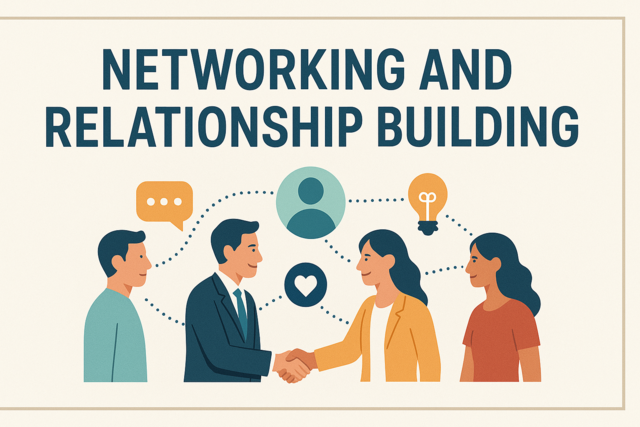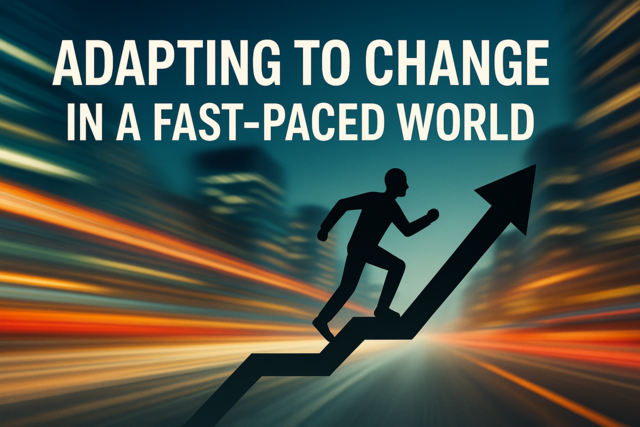Online Class: Neuroscience of Trauma — How the Brain Processes and Heals from Trauma

-
15Lessons
-
21Exams &
Assignments -
6Hours
average time -
0.6CEUs
Course Description
Imagine unlocking the deepest mysteries of the human mind, understanding the intricate dance between neurons that has the power to heal even the deepest of wounds. Dive into the "Neuroscience of Trauma: How the Brain Processes and Heals from Trauma" course--an enlightening journey where scientific discovery meets personal empowerment. This isn't just another online class; it's an invitation to transform your perspective on trauma, equipping you with knowledge that could change lives, starting with your own.
From the very moment you begin this course, a window opens into the complex world of trauma and its profound impact on the human brain. This isn't merely an exploration of facts; it's a narrative that weaves together the stories held within our neural pathways, illuminating how experiences shape us and how, remarkably, we can reshape ourselves. You'll embark on a compelling narrative that elucidates how the brain operates under stress and which pathways light up during moments of crisis, how those same pathways can dim to leave scars--or be rerouted towards healing.
Imagine the power of understanding how the amygdala, the brain's alarm system, dictates responses that can mean the difference between harm and survival. You'll explore the fascinating workings of this critical component and how it fits into the larger puzzle of our neural choreography. But understanding alone is not our goal; through this exploration, you'll find hope, seeing firsthand the mind's incredible capacity for resilience and recovery.
As you delve deeper, the magical world of the hippocampus awaits--a true memory keeper. Learn not just how trauma imprints on memory, but how these scars can be gently rewritten, allowing you to reclaim narratives that seemed forever lost. Alongside the prefrontal cortex, you'll discover how emotional regulation is not just possible but achievable, even after the most disruptive of experiences.
For those grappling with the specter of chronic trauma, this course shines a light on the long-term consequences but also opens doors to renewal and restoration through the astounding lens of neuroplasticity. Witness the astounding capability of the human brain to adapt and overcome, learning how to engage this plasticity to foster healing in yourself and others.
Beyond the biology, the course peers into the world of neurotransmitters, the silent communicators that can hold the keys to unlocking trauma's grip. Understanding their role can empower you to make informed decisions about recovery paths. And with a look into the nuances of developmental trauma, you'll gain insights into its profound effects and learn strategies that foster supportive environments for the most vulnerable, paving pathways to healthier futures.
Embrace the revolutionary insights into genetics and epigenetics that demystify hereditary influences, revealing how trauma responses are affected but not irrevocably dictated by our lineage. You're invited to explore what lies beyond the genes, in a realm where therapeutic interventions like Cognitive Behavioral Therapy and EMDR forge bridges to renewed well-being.
Our journey doesn't just stop at understanding therapy--it extends to engaging the healing power of mindfulness and meditation, tools that not only ease the mind but transform its very structure. And we know that healing is not solitary; thus, we delve into the critical importance of social support, inviting the community and connection that are vital to recovery.
This course concludes not with an end, but with a look to the future of neuroscience research, an exciting glimpse into emergent possibilities and the ever-evolving understanding of trauma healing, leaving you with inspiration and a call to be part of this transformative journey.
This is more than a course; it's an adventure in understanding and empowerment, unparalleled in scope and depth, offering you the tools to not only comprehend trauma but to rise above it. Enroll today and step into a world where your newfound knowledge can light the way for you and others toward a life where past limitations transform into future strengths.
- Business
- Business Ethics Courses
- Harassment Prevention Courses
- Human Resources Certifications
- Management
- Aromatherapy Courses
- Caregiver Courses
- Career Development Courses
- Communications Courses
- Confidence and Self Esteem Courses
- Healing
- Human Anatomy Courses
- Medical Skills
- Health & Medicine
- Nutrition
- Marketing
- Microsoft Office Certification Courses
- Life Coaching Courses
- Self-Improvement
- Small Business Certifications
- Safety
- Writing Improvement
- Business Writing Courses
Course Lessons
Lesson 1. Trauma: A Journey Through History and Healing
 Review Practice Worksheet: Lesson-1-StudyGuide-29059.pdf
Review Practice Worksheet: Lesson-1-StudyGuide-29059.pdf Assessment: Lesson 1 Review Exam
Assessment: Lesson 1 Review Exam
Lesson 2. Exploring the Neurobiological Roots of Stress: How Our Brains Cope and Heal
 Review Practice Worksheet: Lesson-2-HomeWork-29061.pdf
Review Practice Worksheet: Lesson-2-HomeWork-29061.pdf Assessment: Lesson 2 Review Exam
Assessment: Lesson 2 Review Exam
Lesson 3. Instinctive Reactions: Understanding Fight, Flight, Freeze
 Review Practice Worksheet: Lesson-3-Downloadable-29063.pdf
Review Practice Worksheet: Lesson-3-Downloadable-29063.pdf Complete: Lesson 3 Activity
Complete: Lesson 3 Activity
Lesson 4. Decoding Fear: How the Amygdala Manages Traumatic Memories
 Review Practice Worksheet: Lesson-4-Activity-29065.pdf
Review Practice Worksheet: Lesson-4-Activity-29065.pdf Assessment: Lesson 4 Review Exam
Assessment: Lesson 4 Review Exam
Lesson 5. The Resilient Hippocampus: Healing After Trauma
 Review Practice Worksheet: Lesson-5-WorkSheet-29067.pdf
Review Practice Worksheet: Lesson-5-WorkSheet-29067.pdf Assessment: Lesson 5 Review Exam
Assessment: Lesson 5 Review Exam
Lesson 6. Enhancing Healing through Empathy and Cultural Wisdom
 Review Practice Worksheet: Lesson-6-HomeWork-29069.pdf
Review Practice Worksheet: Lesson-6-HomeWork-29069.pdf Assessment: Lesson 6 Review Exam
Assessment: Lesson 6 Review Exam
Lesson 7. Brain Alterations and Recovery Paths in Chronic Trauma
 Review Practice Worksheet: Lesson-7-Downloadable-29071.pdf
Review Practice Worksheet: Lesson-7-Downloadable-29071.pdf Complete: Lesson 7 Activity
Complete: Lesson 7 Activity Assessment: Lesson 7 Review Exam
Assessment: Lesson 7 Review Exam
Lesson 8. Resilience in Neurons: How the Brain Rebounds from Trauma
 Review Practice Worksheet: Lesson-8-WorkSheet-29073.pdf
Review Practice Worksheet: Lesson-8-WorkSheet-29073.pdf Complete: Lesson 8 Activity
Complete: Lesson 8 Activity Assessment: Lesson 8 Review Exam
Assessment: Lesson 8 Review Exam
Lesson 9. Exploring Neurotransmitters: Pathways to Healing Trauma
 Review Practice Worksheet: Lesson-9-StudyGuide-29075.pdf
Review Practice Worksheet: Lesson-9-StudyGuide-29075.pdf Complete: Lesson 9 Activity
Complete: Lesson 9 Activity Assessment: Lesson 9 Review Exam
Assessment: Lesson 9 Review Exam
Lesson 10. Building Resilient Communities through Trauma-Informed Practices
 Review Practice Worksheet: Lesson-10-StudyGuide-29077.pdf
Review Practice Worksheet: Lesson-10-StudyGuide-29077.pdf Complete: Lesson 10 Activity
Complete: Lesson 10 Activity Assessment: Lesson 10 Review Exam
Assessment: Lesson 10 Review Exam
Lesson 11. Why Your Ancestors' Trauma Matters: The Science Explained
 Review Practice Worksheet: Lesson-11-Activity-29079.pdf
Review Practice Worksheet: Lesson-11-Activity-29079.pdf Complete: Lesson 11 Activity
Complete: Lesson 11 Activity Assessment: Lesson 11 Review Exam
Assessment: Lesson 11 Review Exam
Lesson 12. From Conditioning to Cognition: The Evolution of CBT's Impact on Trauma Recovery
 Review Practice Worksheet: Lesson-12-HomeWork-29081.pdf
Review Practice Worksheet: Lesson-12-HomeWork-29081.pdf Assessment: Lesson 12 Review Exam
Assessment: Lesson 12 Review Exam
Lesson 13. Meditation and Trauma: Rewiring the Brain
 Review Practice Worksheet: Lesson-13-Downloadable-29083.pdf
Review Practice Worksheet: Lesson-13-Downloadable-29083.pdf Assessment: Lesson 13 Review Exam
Assessment: Lesson 13 Review Exam
Lesson 14. The Neurobiology of Social Support: Foundations for Trauma Recovery
 Review Practice Worksheet: Lesson-14-Downloadable-29085.pdf
Review Practice Worksheet: Lesson-14-Downloadable-29085.pdf Assessment: Lesson 14 Review Exam
Assessment: Lesson 14 Review Exam
Lesson 15. Trauma, Neuroplasticity, and Resilience
 Review Practice Worksheet: Lesson-15-HomeWork-29086.pdf
Review Practice Worksheet: Lesson-15-HomeWork-29086.pdf Lesson discussions: End of Course Poll; Course Comments
Lesson discussions: End of Course Poll; Course Comments Complete: Lesson 15 Activity
Complete: Lesson 15 Activity Assessment: Lesson 15 Review Exam
Assessment: Lesson 15 Review Exam
Learning Outcomes
- Define the historical evolution of trauma understanding, highlighting key figures and shifts from physical to psychological perspectives.
- Identify how trauma affects physiological processes in the brain, using insights from contemporary neuroscience research.
- Define the role of the amygdala and its impact on stress response and emotional regulation, particularly in trauma survivors.
- Evaluate therapeutic interventions like mindfulness and cognitive-behavioral therapy for their effectiveness in promoting neural resilience and recovery from trauma.
- Define the roles of the amygdala and hypothalamus in triggering the brain's immediate response to trauma.
- Describe how the freeze response is regulated by the parasympathetic nervous system and the dorsal vagal complex.
- Demonstrate understanding of how the amygdala processes traumatic memories by explaining its role in emotional response and memory consolidation related to trauma.
- Identify therapeutic interventions that can modulate amygdala activity, promoting better emotional regulation and resilience in trauma recovery contexts.
- Define how the hippocampus contributes to memory processing and how trauma alters its function.
- Identify therapeutic strategies that leverage neuroplasticity to address trauma-induced hippocampal damage.
- Demonstrate active listening techniques to foster trust and support in trauma-informed peer communication.
- Identify nonverbal communication strategies that enhance connection and safety in trauma recovery environments.
- Demonstrate mastery of lesson content at levels of 70% or higher.
Additional Course Information

- Document Your Lifelong Learning Achievements
- Earn an Official Certificate Documenting Course Hours and CEUs
- Verify Your Certificate with a Unique Serial Number Online
- View and Share Your Certificate Online or Download/Print as PDF
- Display Your Certificate on Your Resume and Promote Your Achievements Using Social Media

Related Courses
-
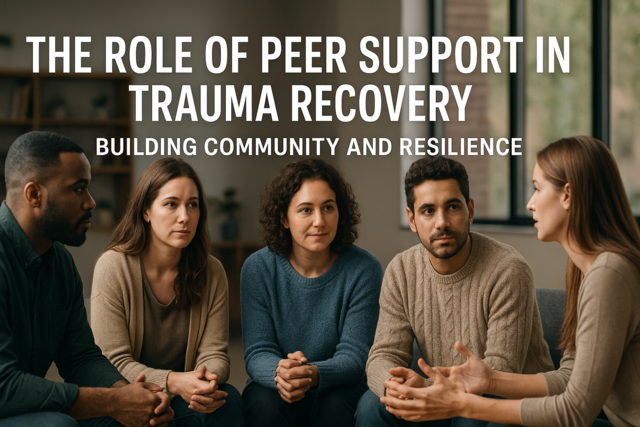 3 hours
0.3 CEUs
The Role of Peer Support in Trauma Recovery: Building Community and Resilience
+ More Info
3 hours
0.3 CEUs
The Role of Peer Support in Trauma Recovery: Building Community and Resilience
+ More Info
-
 5 hours
0.5 CEUs
Understanding Nutrition Labels and Food Choices
+ More Info
5 hours
0.5 CEUs
Understanding Nutrition Labels and Food Choices
+ More Info
-
 5 hours
0.5 CEUs
Developing a Growth Mindset
+ More Info
5 hours
0.5 CEUs
Developing a Growth Mindset
+ More Info
-
 6 hours
0.6 CEUs
Healing from Narcissism: Paths to Recovery and Healthy Dynamics
+ More Info
6 hours
0.6 CEUs
Healing from Narcissism: Paths to Recovery and Healthy Dynamics
+ More Info
-
 6 hours
0.6 CEUs
Project Management for Personal Projects
+ More Info
6 hours
0.6 CEUs
Project Management for Personal Projects
+ More Info
-
 7 hours
0.7 CEUs
Developing and Maintaining Healthy Habits
+ More Info
7 hours
0.7 CEUs
Developing and Maintaining Healthy Habits
+ More Info
-
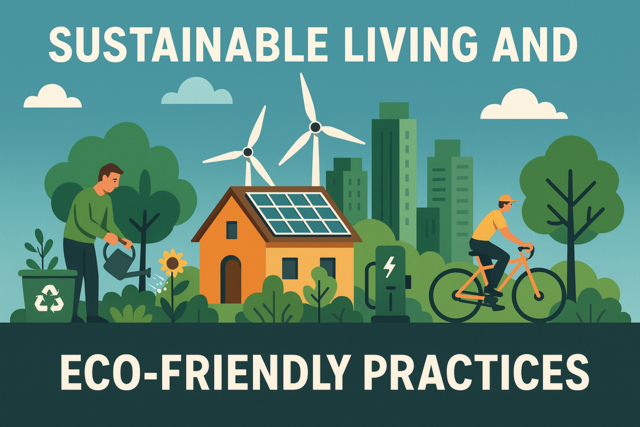 7 hours
0.7 CEUs
Sustainable Living and Eco-Friendly Practices
+ More Info
7 hours
0.7 CEUs
Sustainable Living and Eco-Friendly Practices
+ More Info
-
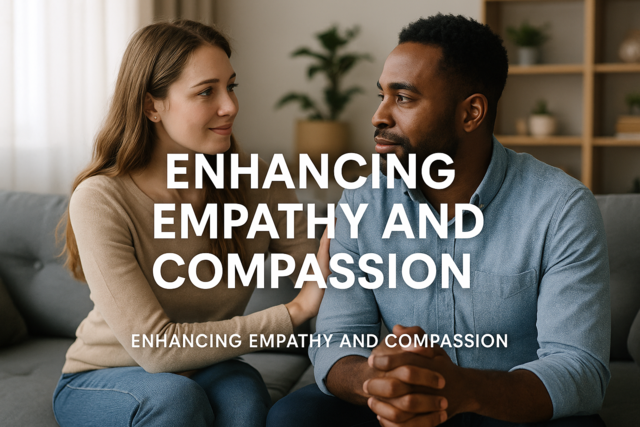 7 hours
0.7 CEUs
Enhancing Empathy and Compassion
+ More Info
7 hours
0.7 CEUs
Enhancing Empathy and Compassion
+ More Info
-
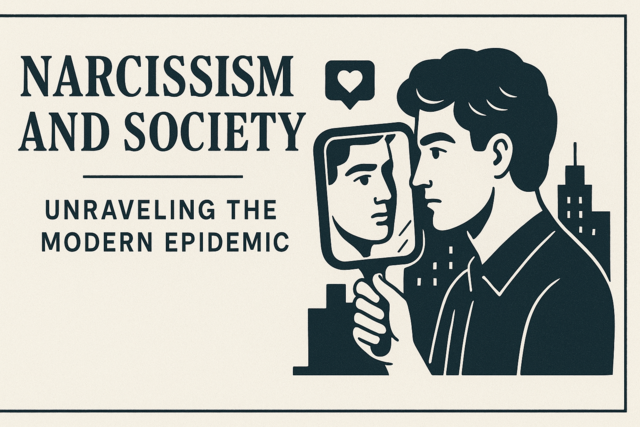 6 hours
0.6 CEUs
Narcissism and Society: Unraveling the Modern Epidemic
+ More Info
6 hours
0.6 CEUs
Narcissism and Society: Unraveling the Modern Epidemic
+ More Info
-
 3 hours
0.3 CEUs
Creating and Maintaining Personal Boundaries
+ More Info
3 hours
0.3 CEUs
Creating and Maintaining Personal Boundaries
+ More Info
-
 3 hours
0.3 CEUs
Career Planning and Development
+ More Info
3 hours
0.3 CEUs
Career Planning and Development
+ More Info
-
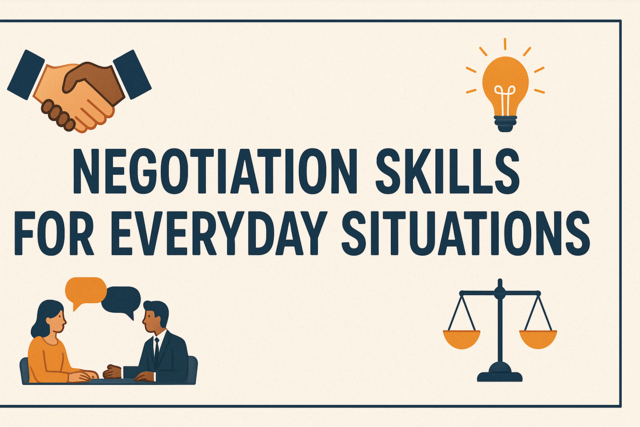 3 hours
0.3 CEUs
Negotiation Skills for Everyday Situations
+ More Info
3 hours
0.3 CEUs
Negotiation Skills for Everyday Situations
+ More Info
-
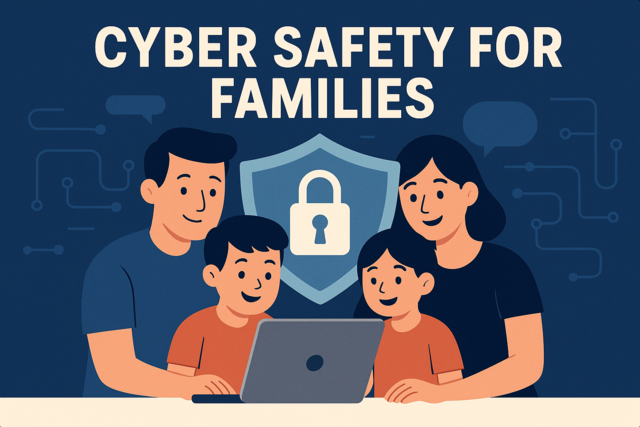 5 hours
0.5 CEUs
Cyber Safety for Families
+ More Info
5 hours
0.5 CEUs
Cyber Safety for Families
+ More Info
-
 7 hours
0.7 CEUs
Building a Healthy Work Environment
+ More Info
7 hours
0.7 CEUs
Building a Healthy Work Environment
+ More Info
-
 5 hours
0.5 CEUs
Generational Patterns: How Narcissism Perpetuates Dysfunction
+ More Info
5 hours
0.5 CEUs
Generational Patterns: How Narcissism Perpetuates Dysfunction
+ More Info
-
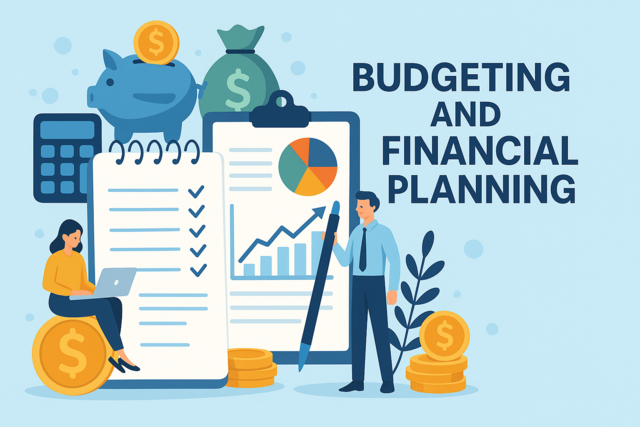 3 hours
0.3 CEUs
Budgeting and Financial Planning
+ More Info
3 hours
0.3 CEUs
Budgeting and Financial Planning
+ More Info


